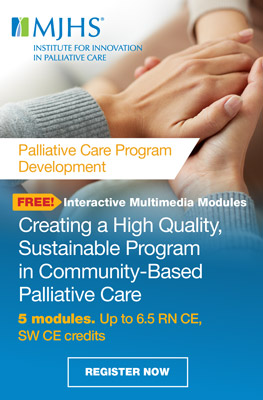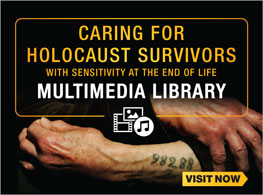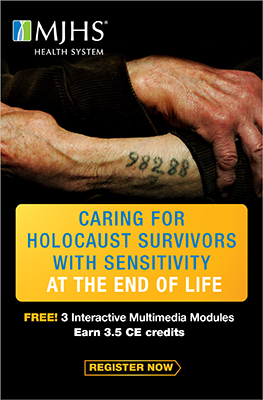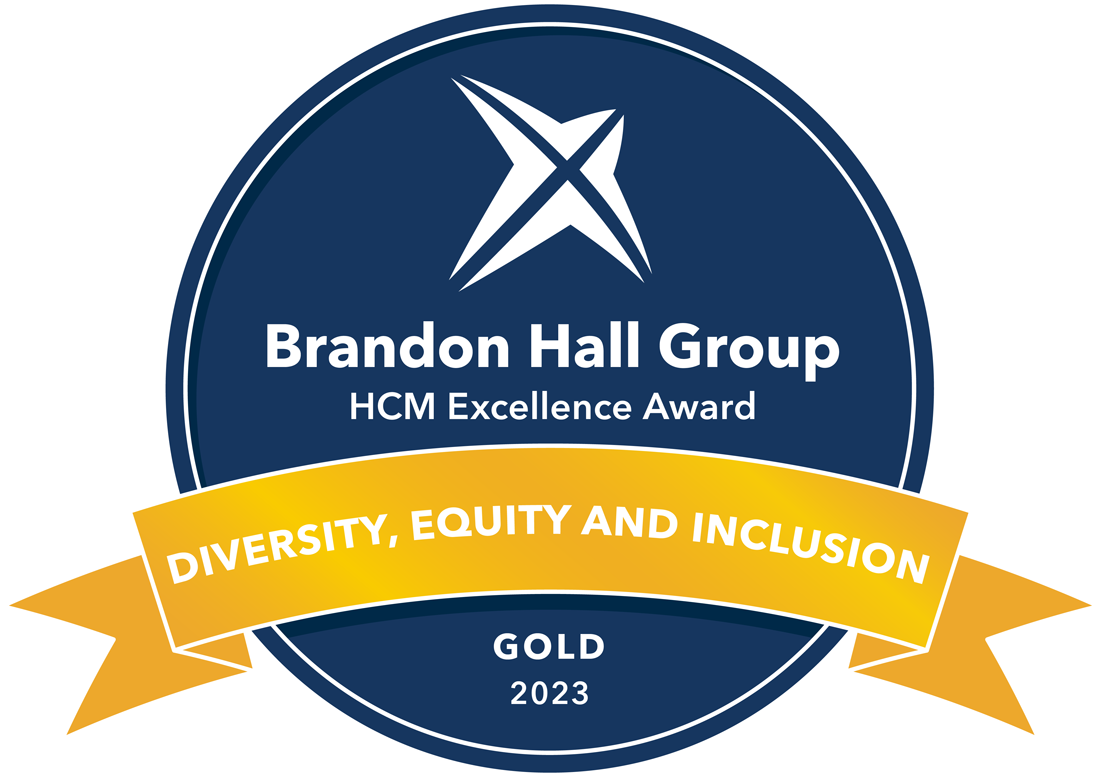Hospice & Palliative Care
ONLINE CONTINUING EDUCATION
Learn Anytime. Earn Credits. Improve Practice.
ON-DEMAND WEBINAR SERIES:
UNDERSTANDING THE IMPACT OF TRAUMA ON HOLOCAUST SURVIVORS FACING THE END OF LIFE: EXAMINING THE PAST TO IMPROVE PRESENT CARE

Toby Weiss, MSOD
Director of Cultural Sensitivity and Jewish Programming
MJHS Hospice and Palliative Care
Paul Radensky, Ph.D.
Senior Director for Education
Museum of Jewish Heritage – A Living Memorial to the Holocaust
Toby Levy
Holocaust Survivor
Irit Felsen, Ph.D.
Clinical Psychologist
Purpose: The goal of this webinar is to educate professionals who work with Holocaust survivors and other trauma survivors to recognize and respond to post-traumatic stress symptoms in Holocaust survivors, Second-Generation survivors, and family members of other trauma victims. Participants will become better informed about delivery of person-centered, trauma-informed care at the end of life.
Objectives:
- Discuss the historical background leading up to the Holocaust and gain insight into the firsthand experience of a Holocaust survivor
- Identify clinical presentations of post-traumatic symptoms in elderly patients, and how they differ from the clinical presentation in younger trauma-exposed individuals
- Discuss the interaction between normative processes of aging and a history of traumatic experiences in older individuals, and how these interactions complicate adaptation to aging, to illness, and to end-of-life issues
- Recognize characteristics of patients identified by studies of the neuroscience of social cognitions to put certain individuals at risk for nonconscious, unintentional dehumanization by healthcare providers
- Recognize signs of your own unintentional reactions to patients and develop specific pragmatic and self-regulating strategies to counter reactions and ensure empathic, humane care for elderly trauma-survivor patients
Target Audience: Registered nurses, registered nurses with a specialty in palliative care/hospice, advanced practice nurses, nurse practitioners, social workers, and allied health professionals.
Criteria for Successful Completion:
- Attendance at entire session
- Submission of completed evaluation form
- Successful completion of a posttest; 80% passing grade (mandatory to receive CE credit for social workers)
Continuing Education Credits: 3.0
Continuing Education Accreditation
Nurses: The MJHS Institute for Innovation in Palliative Care is approved as a provider of nursing continuing professional development by the Northeast Multistate Division Education Unit, an accredited approver of continuing nursing education by the American Nurses Credentialing Center’s Commission on Accreditation.
Social Workers: MJHS Institute for Innovation in Palliative Care is recognized by the New York State Education Department's State Board for Social Work as an approved provider of continuing education for licensed social workers #SW-0242.
Fees:
Individual: Free (includes CE certificate)
Release Date: September 17, 2020
Expiration Date: July 9, 2025 (for nurses); January 31, 2028 (for NYS Social Workers)
Disclosures:
No Planning Committee Member has any disclosures.
Planning Committee Members
Myra Glajchen, DSW
Kerrianne P. Page, MD, HMDC
Joyce Palmieri, MS, RN, CHPN
Karen Richards, PhD, EdS
Funding Disclosure: No commercial funding has been accepted for the activity.
The MJHS Institute for Innovation in Palliative Care is pleased to offer free interdisciplinary palliative care webinars, live and on demand, delivered by frontline experts, typically offering Continuing Medical Education (CME), Nursing continuing education (CE), Social Work CE credits, Case Manager CCMC CE credits, and Music Therapy CE credits.
Our free interactive multimedia modules on Community-Based Palliative Care Program Development and Caring for Holocaust Survivors With Sensitivity at End of Life offer up to 9.75 CE credits.
Free pdf downloads now available: 15 palliative care professional factsheets and patient education handouts on 18 topics in English, Spanish, Haitian Creole, Arabic, French, and Russian.
















